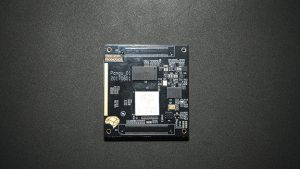Bloomberg
The Netherlands and Japan, home to key suppliers of semiconductor manufacturing equipment, are close to joining a Biden administration-led effort to restrict exports of the technology to China and hobble its push into the chips industry.
The Dutch and Japanese export controls may be agreed to and finalized as soon as the end of January, according to people familiar with the matter. Japan’s prime minister, Fumio Kishida, and the prime minister of the Netherlands, Mark Rutte, discussed their plans with US President Joe Biden at the White House earlier this month.
“I’m fairly confident that we will get there,†Rutte said Thursday in an interview with Bloomberg News on the sidelines of the World Economic Forum in Davos, Switzerland.
The Hague and Tokyo likely won’t go as far as Washington’s restrictions, which not only limit exports of American-made machinery but also impede US citizens from working with Chinese chipmakers. Even so, Beijing may find itself even more cut off from either the technology or know-how it needs to build the most advanced kinds of semiconductors once all three countries act.
While the US is home to the biggest group of chip-gear makers, the Netherlands boasts ASML Holding NV, which controls the market for lithography technology that’s one of the most important steps in producing the electronic components. Japan’s Tokyo Electron Ltd. is a major rival to US companies in other types of machinery. Without access to their state-of-the-art products and those supplied by US firms Applied Materials Inc., Lam Research Corp. and KLA Corp., Chinese companies would find it almost impossible to build production lines capable of the most advanced chip manufacturing, analysts say.
Applied Materials, Lam Research and KLA all traded down by more than 2%, in line with broader market moves.
On Friday, Japanese ruling party heavyweight Akira Amari, the main architect of Tokyo effort to elevate Japan’s semiconductor industry, said his country must join the US in containing China’s chip ambitions, warning that Beijing is part of a group of nations seeking global hegemony and must be curbed.
But any sanctions need to be carefully calibrated to avoid a complete decoupling that could threaten global economic stability, Amari told Bloomberg News.
“Countries like China, Russia and North Korea are vying for global hegemony, and we should never help them achieve that,†Amari told Bloomberg News in an interview. “We must join the US in stopping exports of cutting-edge chips that can be diverted for military use and pose serious security concerns.â€
A spokeswoman for the White House’s National Security Council declined to comment.
China Foreign Ministry spokesman Wang Wenbin said Friday at a regular press briefing in Beijing that the US effort showed its “selfish hegemonic interest†and that Washington was “seeking to benefit itself at the expense of its allies.â€
Beijing “would follow what is developing an defend our own interests,†Wang added.
The Biden administration issued sweeping new rules in October that include restrictions on the supply of US manufacturers’ most advanced chipmaking equipment to Chinese customers and limits on Americans working for Chinese semiconductor firms, a move aimed at choking off access to certain expertise.
A comment period on the Commerce Department’s rules — opposed by some US semiconductor companies but supported by lawmakers in both parties — closes Jan. 31. Republicans in Congress have pressured Commerce Secretary Gina Raimondo to crack down even tighter on Chinese chipmakers, questioning in a letter on Wednesday whether the export controls are being sufficiently enforced.
 The Gulf Time Newspaper One of the finest business newspapers in the UAE brought to you by our professional writers and editors.
The Gulf Time Newspaper One of the finest business newspapers in the UAE brought to you by our professional writers and editors.
